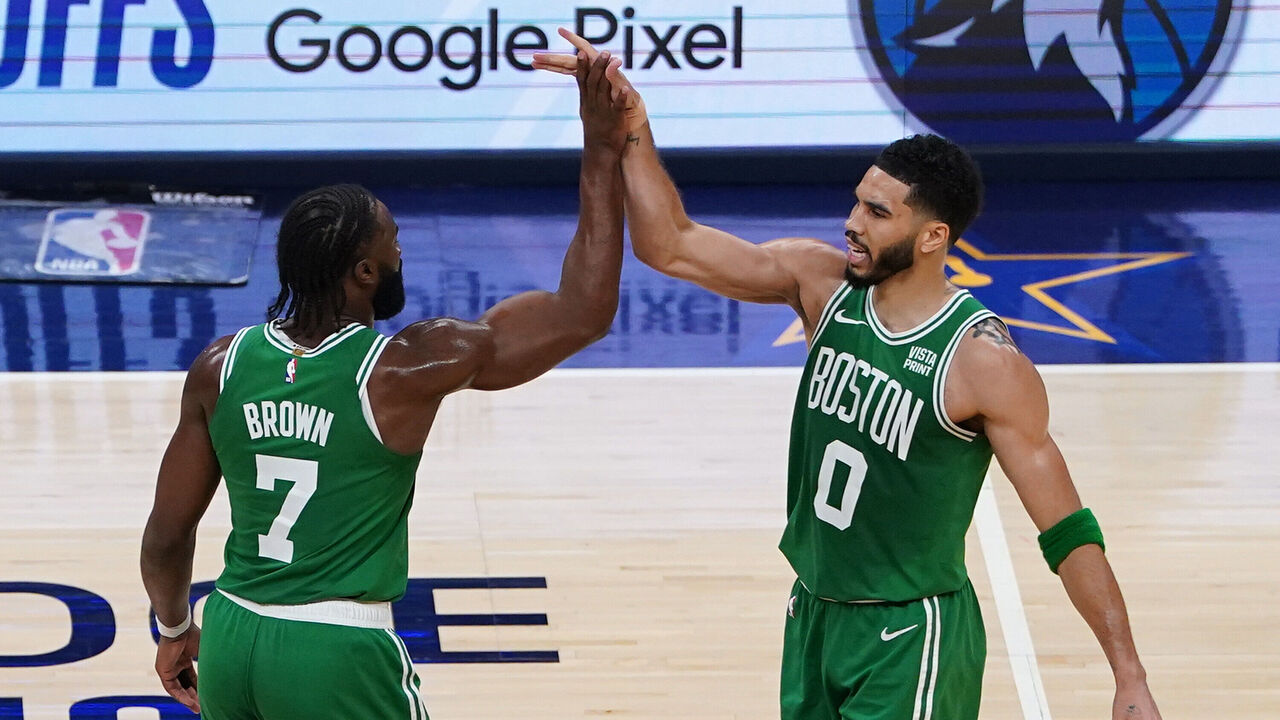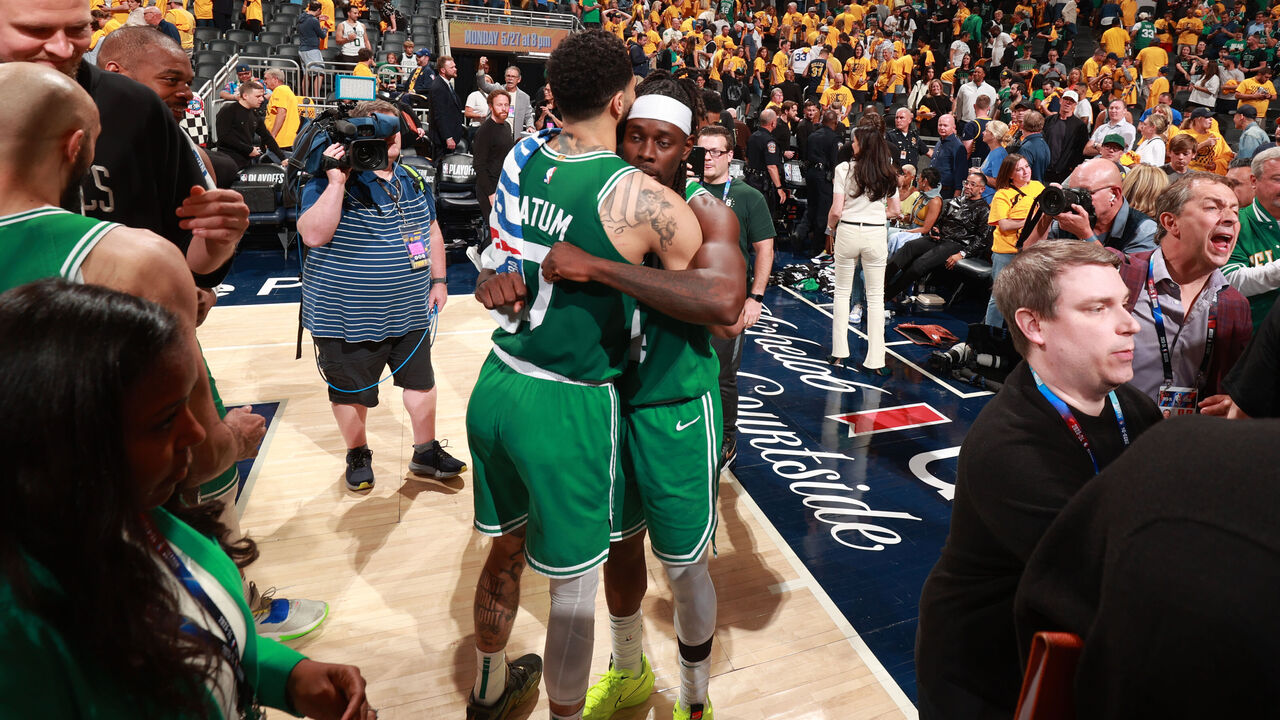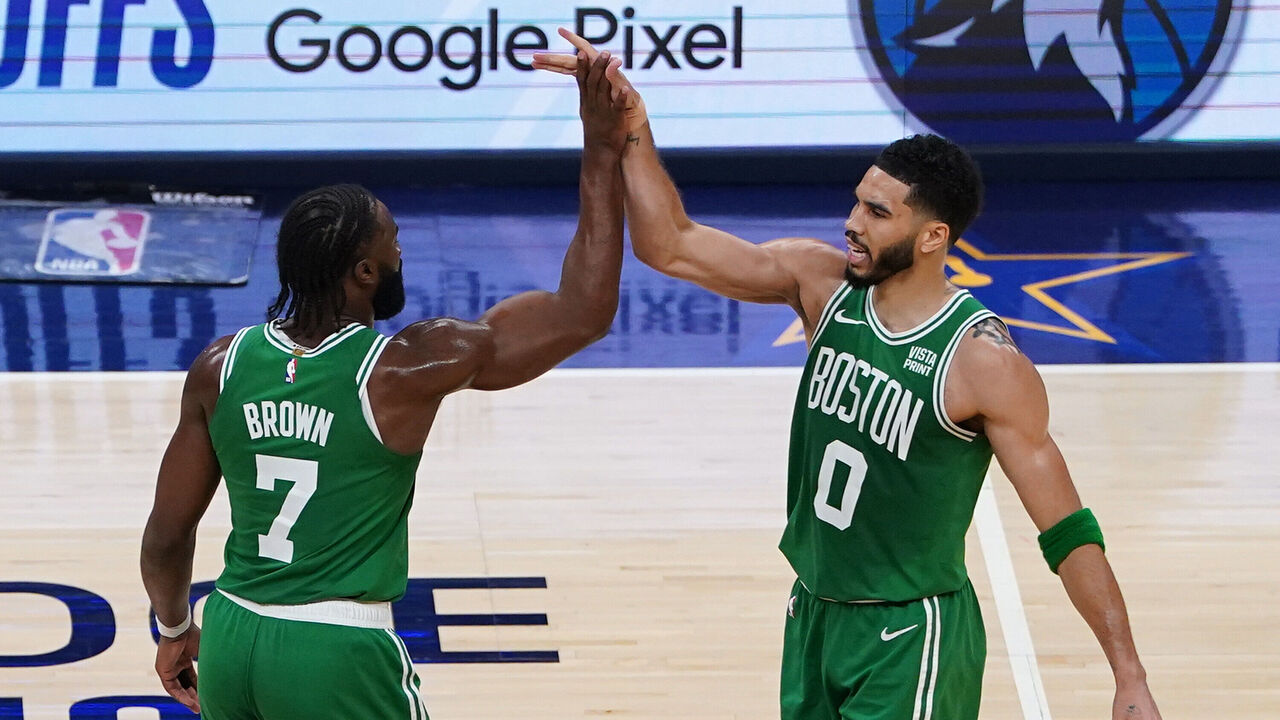The Celtics are historically dominant but somehow underwhelming
As the battle for Western Conference supremacy raged on this week before Dallas ousted Minnesota, the Eastern Conference champions laid in wait.
Such was the reward for the Boston Celtics for finishing their East business in short order after sweeping the Pacers. The Celtics will have nine days off between finishing Indiana and the start of the NBA Finals on Thursday, June 6.
That gives us time to consider what to make of this confounding team, as the 2023-24 Celtics somehow managed to dominate their competition while simultaneously underwhelming us.
Perhaps we’ve become too demanding, and Boston’s excellence too boring.

It’s fair to wonder whether the Celtics can rise to the Mavericks’ level after looking lethargic throughout their East playoff run. Has the team’s foot been off the gas pedal too long for it to suddenly ramp back up against Dallas?
On the other hand, did Boston ever really take its foot off the gas?
We celebrate the nearly unprecedented parity in the Association right now but then rip the Celtics for allegedly playing with their food. Sure, Boston was tested by wounded teams in the first three rounds, but the Celtics were beaten only twice in 14 games and were never truly threatened. They haven’t trailed in any series.
Much was made of the Jimmy Butler-less Heat stealing Game 2 in Boston in the first round, but that had more to do with Miami’s unsustainable shooting than any great Celtics flaw. Boston went on to win the first-round series in five games, with the team’s four wins coming by an average of 22 points.
The No. 4 seed Cavs similarly stole Game 2 in Beantown, handing the Celtics a 24-point loss that served as their second-biggest defeat of the season. Without Donovan Mitchell in Game 4, Cleveland found a way to hang around, further pushing the narrative that the top-seeded Celtics weren’t locked in. Boston won that series in five games, too, with an average point differential of plus-7.2.
Next came No. 3 Indiana, which benefitted from major injuries that derailed Milwaukee and New York in the first two rounds. Even without All-NBA guard Tyrese Haliburton in Games 3 and 4, the Pacers gave themselves a chance to win three out of four games in the conference finals. Indiana was up five in the final two minutes of Game 1, up eight in the final three minutes of Game 3 (after squandering an 18-point lead), and up eight with under six minutes remaining in Game 4.
Should facing such frequent deficits against inferior competition be an indictment of the 64-win Celtics? Or is the fact Boston escaped that Indiana series undefeated a reminder of why it’s been the championship favorite all along? In the 41-year history of the NBA’s 16-team playoff format, this is only the 12th time a team has advanced to the Finals with two losses or fewer after winning every series in five games or less.
The last time a team won its conference with so few playoff losses was seven years ago when Golden State and Cleveland both accomplished the feat. The 2017 Warriors – arguably the greatest team ever assembled – went undefeated through the West playoffs en route to Kevin Durant’s first championship.
You can argue the only reason the 2024 Celtics are being mentioned in the same breath is because Boston has been aided by injury. But the 2017 Warriors also benefitted greatly from an infamous Game 1 injury to then-Spurs superstar Kawhi Leonard in the conference finals. This year’s Celtics have also been without Kristaps Porzingis since Round 1.

Style points aren’t supposed to count for anything in the playoffs, where winning is the only measure of success. The Celtics have largely taken care of business. Should they be held to a higher standard?
During the regular season, Boston became only the fifth team in the 21st century to finish at least seven games clear atop the overall standings. The Celtics also posted the fifth-best point differential in NBA history and became only the 10th team to finish top-two in both offensive and defensive rating. They’ve followed that up by winning 12 of their first 14 playoff games while boasting an average postseason point differential (plus-10.1) that ranks 10th all time (minimum 10 games played), per Stathead. Yet this success has been met with more skepticism and indifference than praise.
The notion that this is simply what Boston should be doing was the same argument used against head coach Joe Mazzulla in Coach of the Year balloting.
In Jayson Tatum, Jaylen Brown, Porzingis, Jrue Holiday, Derrick White, and Al Horford, Boston’s top players give Mazzulla a solution to every conceivable matchup or conundrum he can possibly encounter. Sure, the Celtics sometimes rely too heavily on long jumpers and go too long without attacking the rim, but the core six have the collective skills to be a three-level scoring machine. On the other end, no team is as versatile or switchable defensively.
When reserve center Luke Kornet – only in Boston’s rotation due to Porzingis’ absence – left Game 2 of the East final with a wrist injury, he was replaced by forward Oshae Brissett. Brissett then spent the majority of his minutes guarding perimeter players (Haliburton and T.J. McConnell) rather than Pacers center Myles Turner, baiting Indiana into force-feeding Turner in the post. However, the Pacers got virtually nothing out of those so-called mismatches because the smaller players defending Turner were defensive stalwarts like Holiday and Tatum.
This team is a well-oiled machine. Its gentlemanly demolition of weakened opponents may leave something to be desired, but the Celtics continue to check every box of a historically great champion.
At what point do we stop asking this 76-20 team to show us what it’s truly made of and start appreciating the undeniable body of work?
Joseph Casciaro is theScore’s senior content producer.


